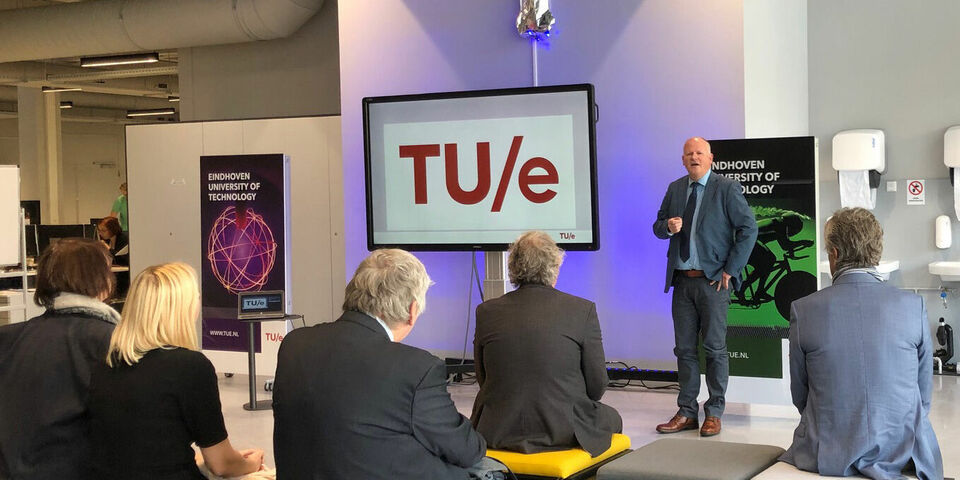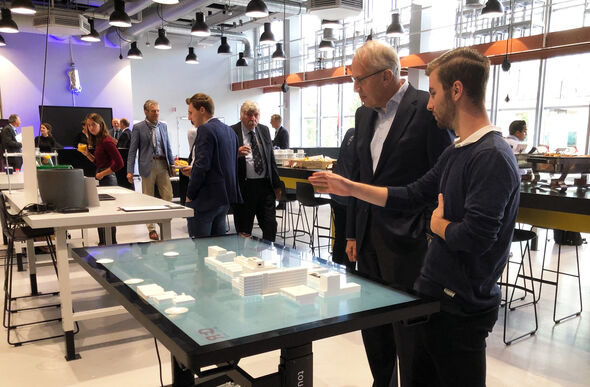Small scale and diversity topics of second TU/e inspection
How do the growth in student numbers and the preservation of the small scale play off against each other? And how is diversity rooted in TU/e policy? These will be important focal points during the second visit by the Accreditation Organization of the Netherlands and Flanders (NVAO) in November. The delegation has selected Built Environment and Electrical Engineering as the departments it will be examining more closely. During its first visit, some ten days ago, the NVAO review panel gave particular praise to the good, interdepartmental cooperation at our university.
The four areas the NVAO panel will be focusing on during its second visit, from November 25th through 27th, did not come as a complete surprise to the TU/e steering group Institutional Audit Quality Assurance (ITK) - tells Lilian Halsema, head of Education Policy at TU/e. “We definitely wanted them to take a critical look at TU/e's growth in relation to our preservation of the small scale. Among other things, they will be looking at how we organize the ongoing professionalization of our lecturers and the educational facilities we have here.”
Five members of the review panel, a process coordinator and an NVAO secretary came to TU/e on Thursday 10th and Friday 11th October and spoke with more than fifty employees and students. At the end of their visit, they announced the themes and departments they would be studying during their second visit. As well as diversity (in the broadest sense of the word) and the tension between the small scale and growth, their remit will include challenge-based learning and ‘the entire organization relating to educational quality’. “We have a lot of consultative bodies whose work relates to the quality of our education,” says Halsema. “The NVAO is keen to know how these various committees cooperate on various levels.”
The four focal areas will be examined in more detail across TU/e as a whole. At Built Environment and Electrical Engineering a 'past performance trail' will be conducted, in other words, the panel will look at how these departments have performed in recent years with regard to setting up quality assurance, risk detection, and following up on the results. The review panel has chosen to visit two very different departments.
Outsourcing to study associations
Halsema sees the first visit as having gone well. “It was a very amenable panel and they asked good questions. They were very open and they noticed that cooperation is strong across the whole of TU/e. We expect them to make good recommendations.” At the last meeting of the University Council, Rector Frank Baaijens also recalled the visit. As well as the above-mentioned matters, he also pointed out that the review panel saw that study associations play an important role, but did wonder whether TU/e wasn't outsourcing too much to these associations.
During the first visit the TU/e representatives were divided into four groups and asked how quality assurance is organized at TU/e. They included a great many students. Luuk Meeuwis, master's student of Industrial and Applied Mathematics, had this to say about the visit: “The questions were better than I expected, their preparation was good. The review panelists knew their stuff. They asked, among other things, about the diversity on learning pathways and we could say that there are plenty of electives. The review panel did make the critical comment that we seemed overly positive, but our responses were totally genuine. People here are really pretty proud of TU/e.”
Measure and evaluate
TU/e alumnus Tom Selten thought the review panel did a good job of asking 'probing questions'. He has been actively involved with Solar Team Eindhoven and now works for Lightyear, founded by the original Solar Team members. He has also been involved with TU/e innovation Space. “One thing I mentioned is that I see that much of the contact between companies and TU/e is informal, at least at course level. It is very positive that TU/e is investing so much time and effort in this, but the companies' own experiences are not being systematically 'measured' and evaluated. There's room for improvement here.”
In preparation for the next visit, the TU/e steering group will now put together new panels concentrating on the four focal areas.
The program for the next visit:
Monday November 25th: past performance trail at Built Environment and Electrical Engineering.
Tuesday November 26th: a trail about growth and the small scale at Mathematics and Computer Science, Mechanical Engineering, Industrial Engineering & Innovation Sciences and Applied Physics.
A trail about diversity at Biomedical Engineering, Chemical Engineering & Chemistry and Industrial Design.
Wednesday November 27th: a trail about quality agreements.



Discussion